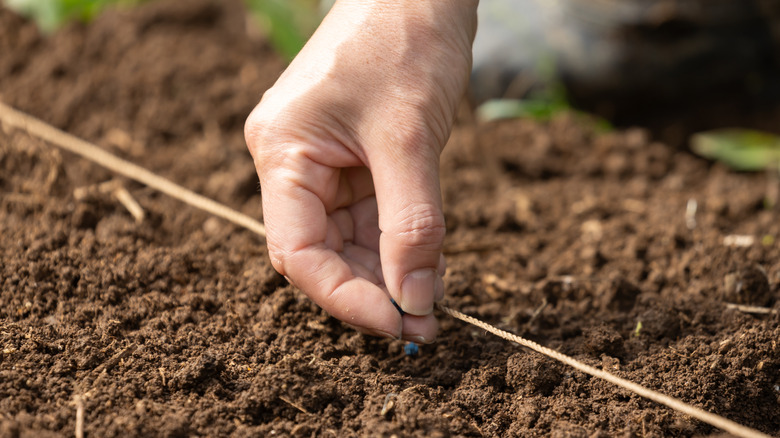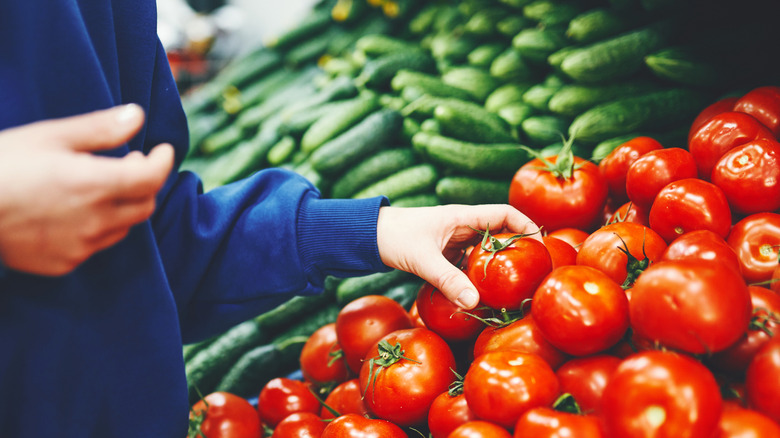Heirloom Vs. Hybrid Seeds: What Gardeners Need To Know
Growing plants from seed can be hugely satisfying. It's also a good deal better for your wallet than buying plants. You can grow flowers for your borders and planters, and there are a whole bunch of easy fruits and vegetables to grow from seed in your backyard, even if you're a complete novice. However, it's not just knowing the differences between organic and non-organic seeds that is important. There is another difference that could impact what you decide to grow. It's the heirloom vs. hybrid seeds question, and it can lead to a fair bit of confusion. So let's look at the details.
Heirloom seeds are open-pollinated. That means the parent plants grew in a garden or a field, and insects, or perhaps just the breeze, took pollen from one to another in order for them to reproduce. It's what nature does. Hybrids are pollinated in a controlled environment, and two specific parents are chosen. The most common result is first-generation hybrids — what you see on a seed packet as F1. The idea behind hybridization is to reproduce the positive strengths of the parent plants and eliminate weaknesses. So you get lots of fruit and resistance to pests and diseases, for example. In a nutshell, heirloom vs. hybrid seeds could be seen as wild versus manmade. Of course, there's quite a bit more to it than that.
Hybrid vs. heirloom seeds: the key differences that will impact your decision
Hybrid seeds are sometimes seen as a modern development, but the process has been around much longer with hybrid corn seed commercialization beginning in the 1930s. It's important to note that hybrids are not the same as GMOs (genetically modified organisms). In fact, currently, GMO seeds are not available to home gardeners. Hybrid seeds usually produce larger, more uniform crops, but the same critics who suggest you skip tasteless tomato plants at the garden center will also argue that foods grown from hybrid seeds lack flavor. To be fair, it does depend on the seed producer. Heirloom seeds also have their issues. They're usually not as resistant to pests, so they often require more care. The crops can be unpredictable with lower yields than hybrid seeds.
Gardeners looking to make the most of their budget will probably choose heirloom seeds for two main reasons. First, heirloom seeds are usually around half the price of their hybrid counterparts. Second, although you can get free seeds by saving them from the plants you grow, only heirloom seeds remain true (you get the same plant as you got last year). Hybrids often do not. You have no idea what will come up, or if the seed will even germinate.
It's impossible to pick a winner in the heirloom vs. hybrid seed debate. Commercial growers choose hybrid seeds for trouble-free cultivation and consistent, high productivity. Some also now have improved vitamin or antioxidant yields. Home gardeners could argue they get the same health benefits from their own naturally grown, heirloom varieties, and who cares if the tomato is a bit lumpy or the cucumber is crooked?

